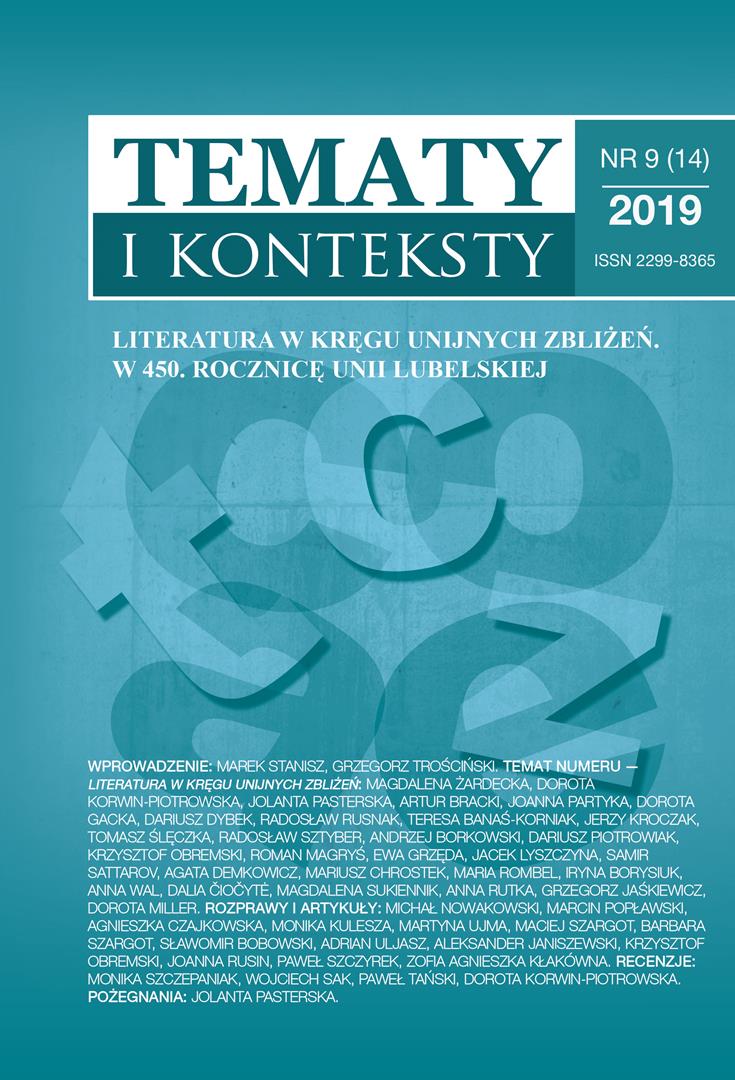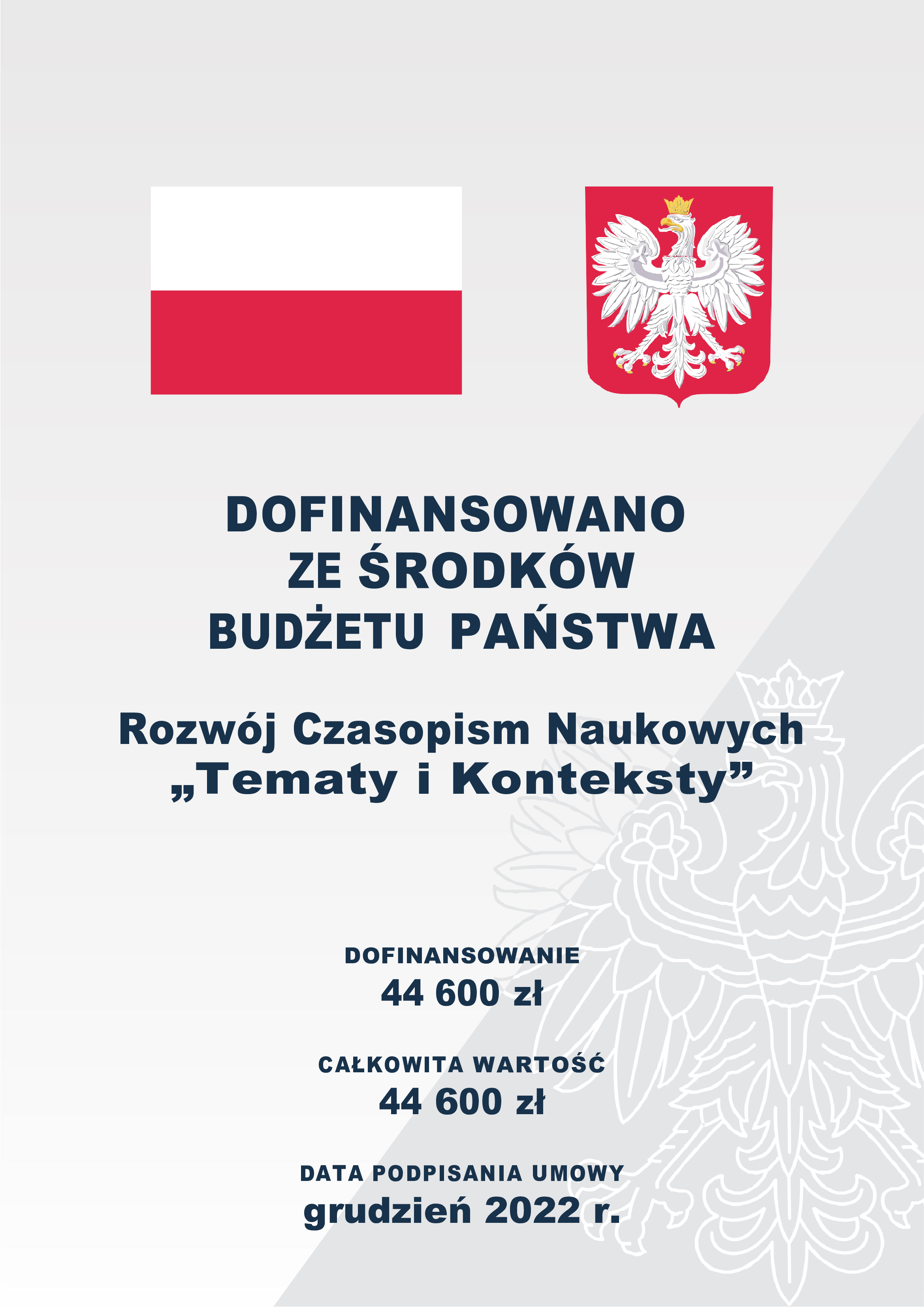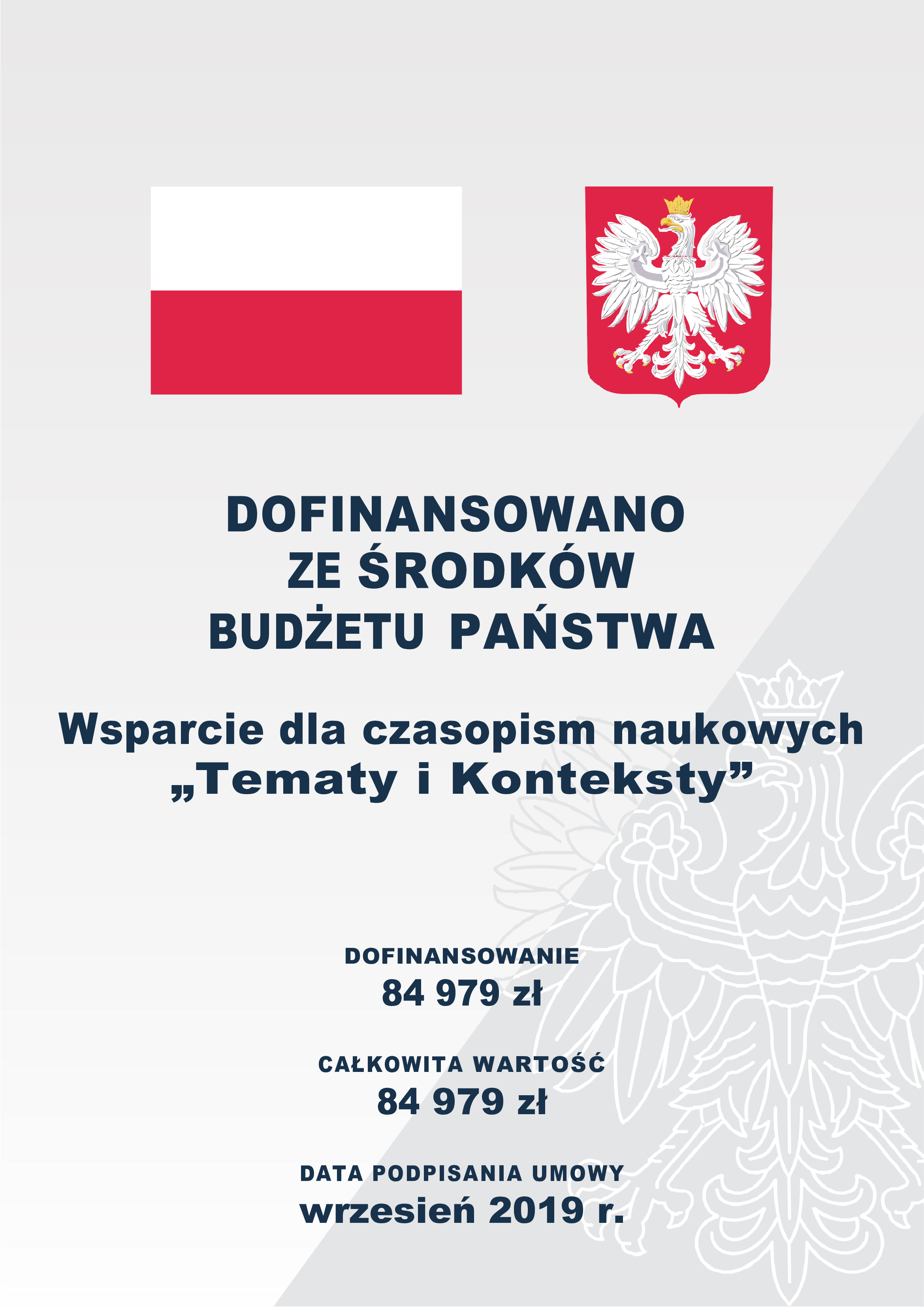In varietate concordia. Nauki humanistyczne i ich wpływ na imaginarium społeczne
DOI:
https://doi.org/10.15584/tik.2019.2Słowa kluczowe:
nauki humanistyczne, unia, wyobraźnia, wrażliwość, dyskurs hipoleptycznyAbstrakt
The paper views human sciences as a kind of cultural bond, building unity across all divisions and boundaries. For this purpose it uses arguments proposed by such intellectuals as Nussbaum, Rorty, Markowski and Assmann. It aims at justification of the thesis that humanities serve intrinsic integration and development of personality, social integration, maintaining bonds with the past and history, and creating a sense of common destiny of all human beings. Human sciences expand our horizons, allowing us to transcend the limits of our inborn egoism, they teach us how to imaginatively reach beyond and above the local perspective, creating foundations for interpersonal solidarity, respect, tolerance and compassion. The present political trends in Poland and in the world clearly favor natural and technical sciences, tending to devaluate and to marginalize humanities, which can be a prognostic of cultural regress, with unpredictable consequences for the future.
Downloads
Bibliografia
Assmann J., Pamięć kulturowa. Pismo, zapamiętywanie i polityczna tożsamość w cywilizacjach starożytnych, przeł. A. Kryczyńska-Pham, Wydawnictwo UW, Warszawa 2015.
Bourdieu B., Rozum praktyczny, przeł. J. Stryjczyk, Wydawnictwo UJ, Kraków 2009.
Derrida J., The Work of Mourning, University of Chicago Press, Chicago 2003.
Janion M., Do Europy tak, ale razem z naszymi umarłymi, Sic!, Warszawa 2000.
Luhmann N., Systemy społeczne, przeł. M. Kaczmarczyk, Nomos, Kraków 2007.
Markowski M. P., Polityka wrażliwości, Universitas, Kraków 2013.
Marquard O., Apologia przypadkowości, przeł. K. Krzemieniowa, Oficyna Naukowa, Warszawa 1994.
Nussbaum M., Nie dla zysku. Dlaczego demokracja potrzebuje humanistów, przeł. Ł. Pawłowski, Fundacja Kultura Liberalna, Warszawa 2016.
Nussbaum M., W trosce o człowieczeństwo, przeł. A. Męczkowska, Wydawnictwo Naukowe Dolnośląskiej Szkoły Wyższej, Wrocław 2008.
Rorty R., Filozofia jako polityka kulturalna, przeł. B. Baran, Czytelnik, Warszawa 2009.
Rorty R., Kosmopolityzm bez emancypacji, w: tegoż, Obiektywność, relatywizm i prawda, przeł. J. Margański, Aletheia, Warszawa 1999, s. 315–330.
Rorty R., Metoda, nauki społeczne i społeczna nadzieja, w: tegoż, Konsekwencje pragmatyzmu, przeł. C. Karkowski, IFiS PAN, Warszawa 1998, s. 239–259.
Rorty R., Nadchodzi czas kryzysu. Rozmowa z R. Rortym, „Rzeczpospolita”, 220 (4777), 20–21 września 1997.
Rorty R., Nauka jako solidarność, w: tegoż, Obiektywność, relatywizm i prawda, przeł. J. Margański, Aletheia, Warszawa 1999, s. 55–70.
Rorty R., O etnocentryzmie, w: tegoż, Obiektywność, relatywizm i prawda, przeł. J. Margański, Aletheia, Warszawa 1999, s. 303–314.
Rorty R., Pierwszeństwo demokracji wobec filozofii, w: tegoż, Obiektywność, relatywizm i prawda, przeł. J. Margański, Aletheia, Warszawa 1999, s. 261–292.
Rorty R., Postmodernistyczny liberalizm mieszczański, w: tegoż, Obiektywność, relatywizm i prawda, przeł. J. Margański, Aletheia, Warszawa 1999, s. 293–302;
Rorty R., Powrót państwa opiekuńczego, „Gazeta Wyborcza”, 2–4 V 1997.
Rorty R., Pragmatyzm, relatywizm i irracjonalizm, w: tegoż, Konsekwencje pragmatyzmu, przeł. C. Karkowski, IFiS PAN, Warszawa 1998, s. 206–222.
Żardecka M., Wspólnota i ironia. Richard Rorty i jego wizja społeczeństwa liberalnego, Wydawnictwo KUL, Lublin 2003.
Pobrania
Opublikowane
Jak cytować
Numer
Dział
Licencja
Prawa autorskie (c) 2019 Tematy i Konteksty

Utwór dostępny jest na licencji Creative Commons Uznanie autorstwa – Użycie niekomercyjne – Bez utworów zależnych 4.0 Międzynarodowe.




